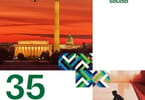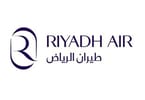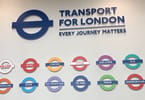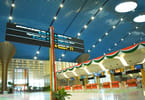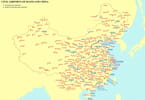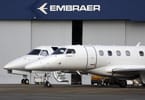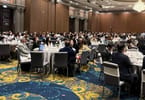For America’s already beleaguered air travelers, there’s something new on the runway. The airlines call it unbundling. Passengers will probably call it something else.
more stories like thisA window seat? That will be $5 more. Extra leg room? $10. A number that will connect you more quickly to a reservations agent when your flight is delayed or canceled? That will be $25, and thank you very much.
US Airways, JetBlue Airways Corp., and Air Canada recently introduced such charges as part of an accelerating industry trend that is transforming the world of air fares from all-inclusive to a la carte. Just about everything travelers once took for granted, right down to the pillow behind your head, may soon carry a pricetag.
Facing record-high fuel prices that threaten airlines with annual losses as severe as the ones that followed the Sept. 11, 2001, terrorist attacks, carriers are scrambling for ways to generate more revenue without directly raising fares and pushing customers to lower-cost competitors. Some airlines were already charging such fees, but more are now adopting them.
For the companies, it may be a necessary step. But for many travelers, it is bound to be a vexing shift, the petty sequel to the move by just about every carrier in 2001 to do away with free food in coach and the end to the longstanding tradition in the US market of all-inclusive air service.
Alan Casso of Sharon is one who finds the change disturbing, and he says it is enough to make him want to buy a train ticket instead, especially for travel between Boston and New York.
“The cost of flying is already high enough,” said Casso, 53, marketing director of a performing arts company. “I would not pay extra for extra legroom or to get a window seat or any of that.”
But for others, the change may be welcome, as it gives passengers more control over just what they will pay for and what they won’t.
“Ultimately, they will be more satisfied because they will be in control of their travel experience,” said Henry Harteveldt, principal airline analyst for Forrester Research Inc.
Indeed, the a la carte model has succeeded in Canada with pay-as-you-go pioneer Air Canada and in Europe with no-frills airline Ryanair Ltd.
Some specialists say that unbundling of fares is overdue for America’s airline industry, which has stocks trading near record lows, as revenues from historically underpriced tickets fall about 20 percent short of covering costs, what with oil at more than $110 a barrel.
Something has to give. “There is no playbook for surviving current developments, which may be good, since it will force the industry to take the actions that are necessary in order to return to health,” Ray Neidl, an industry analyst at Calyon Securities wrote last week.
Starting tomorrow, United Airlines will charge most passengers $25 to check a second bag, which is estimated to affect 25 percent of its customers and generate at least $175 million annually in additional revenue and fuel cost savings. Seven competitors have also adopted the $25 fee, and an eighth, JetBlue, will start charging $20 for the second bag on June 1.
more stories like thisUS Airways plans to go a step further by charging most passengers at least $5 extra to reserve an aisle or window seat in the first several rows of coach, starting Wednesday.
US Airways President Scott Kirby says he is considering still other new fees. Unbundling of pricing has become standard practice in other parts of the US economy, he said, including hotels that charge guests for phone calls and other amenities. “That’s a model that the industry as a whole and US Airways are migrating towards,” Kirby said.
It is a model that was a way of life for the likes of Skybus Airlines Inc., which sold seats on average for half as much as competitors and charged extra for priority boarding, checked luggage, bottled water, blankets, and more. The no-frills carrier, which was modeled after Ryanair, declared bankruptcy and shut down in April.
North America’s king of fees is Air Canada, which saw 45 percent of its 2007 domestic passengers pay for more than just the lowest no-frills fare. Last month, it introduced an “On My Way” program giving stranded customers who pay $25 or $35 one-way a special phone number to talk to an airline agent using travel-reservation software that is better than that used by airport agents.
“You’re buying direct access to a specially trained call-center agent who will provide comprehensive travel assistance, no matter what the reason for the delay or cancellation,” said Air Canada spokesman John Reber.
On My Way also books and pays for a new flight on any airline, a rental car, and a hotel room, even if the passengers are stranded in the city where they live.
JetBlue thinks travelers will pay for slight improvements to services that once were complimentary.
“Rather than nickeling and diming customers, we’re trying to create new products that they want to purchase to further enhance their experience,” said Andrea Spiegel, JetBlue’s vice president of marketing.
Passengers can pay $10 to $30 more to sit in rows with 38 inches of pitch, the distance between two seatbacks. The rest of the seats have 34 inches of pitch, still more room than many competitors’ 31 or 32 inches. Spiegel would not disclose how many super-legroom seats passengers have bought since the service was introduced April 1, but said it has “doubled the amount of revenue we anticipated for the first year of our rollout.”
On June 1, JetBlue will also stop handing out free headphones and sell only an upgraded version for $1 at the gate. Eliminating the large stash of free headsets stowed on board will also trim fuel costs, as the airline saves $1,500 a day for every 100 pounds removed from its fleet.
Later that month, JetBlue will charge for a pillow and blanket. The complimentary ones will be phased out, but Spiegel said the for-sale sleep gear, which passengers keep, is better. The new blanket is made of thicker, higher-quality fleece, and the pillow is hypoallergenic. The airline is reviewing how much to charge, but anticipates that up to 25 percent of passengers will spring for it.
Raphael Bejar – chief executive of Airsavings SA, a company that helps airlines generate ancillary revenue – thinks passengers will simply dress more warmly, rather than pay.
“They’ll prefer to use their coats,” Bejar said. “Each time you’re flying, you’re going to buy a blanket? It’s ridiculous. You’re going to have a huge collection.”
Bejar is not the only one unimpressed with the US airline industry’s a la carte pricing.
“What I’m waiting for,” said Harteveldt, “is for an airline to admit that seats in the last row of the plane, that don’t recline, that are near the restrooms, are rotten, and they’ll give you a $5 credit if you sit there.”
boston.com
WHAT TO TAKE AWAY FROM THIS ARTICLE:
- But for many travelers, it is bound to be a vexing shift, the petty sequel to the move by just about every carrier in 2001 to do away with free food in coach and the end to the longstanding tradition in the US market of all-inclusive air service.
- more stories like thisUS Airways plans to go a step further by charging most passengers at least $5 extra to reserve an aisle or window seat in the first several rows of coach, starting Wednesday.
- Alan Casso of Sharon is one who finds the change disturbing, and he says it is enough to make him want to buy a train ticket instead, especially for travel between Boston and New York.







